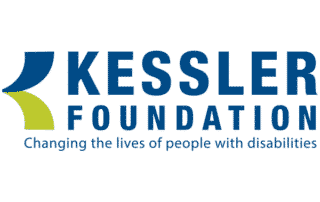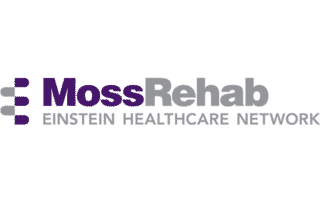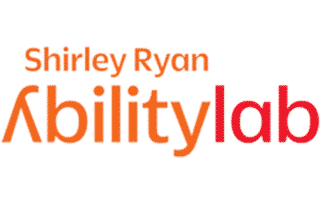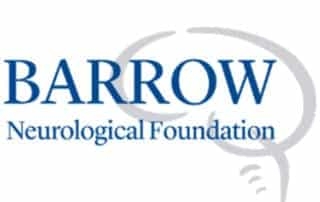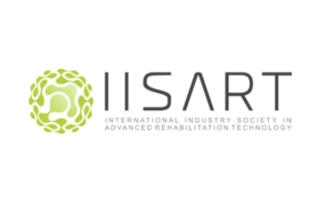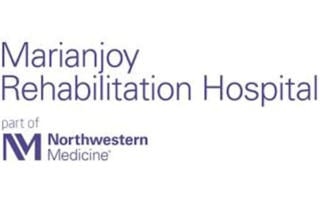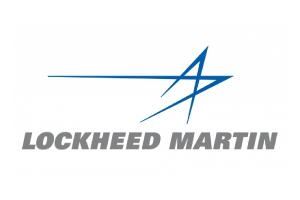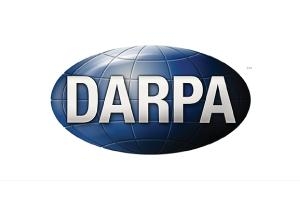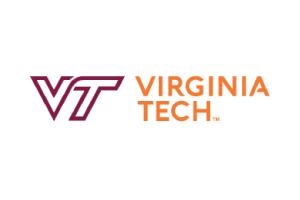Ekso offers the most studied exoskeletons in the world
World-renowned institutions are leading the charge in exoskeleton research on acquired brain injury, stroke, spinal cord injury, multiple sclerosis, and more with Ekso.
With countless partners like Johns Hopkins, Shirley Ryan AbilityLab, Kessler Institute, the Department for Veteran’s Affairs, UCLA, and more, Ekso’s technology is based on clinical expertise and feedback from industry leaders. We are excited to offer innovative rehabilitative exoskeletons like EksoNR, the world’s only FDA-approved exoskeleton for the treatment of ABI, CVA, MS, and SCI.
Continuing to drive research.
Since 2012, we have sponsored or supported mostly investigator-initiated clinical research utilizing our medical devices. Initially, most of these focused on safety and feasibility of using the Ekso exoskeleton with different patient populations. Many of these studies have led to larger studies (single-arm or comparative), where the investment of time and resources is considerable. We remain committed to demonstrating clinical benefit through research.
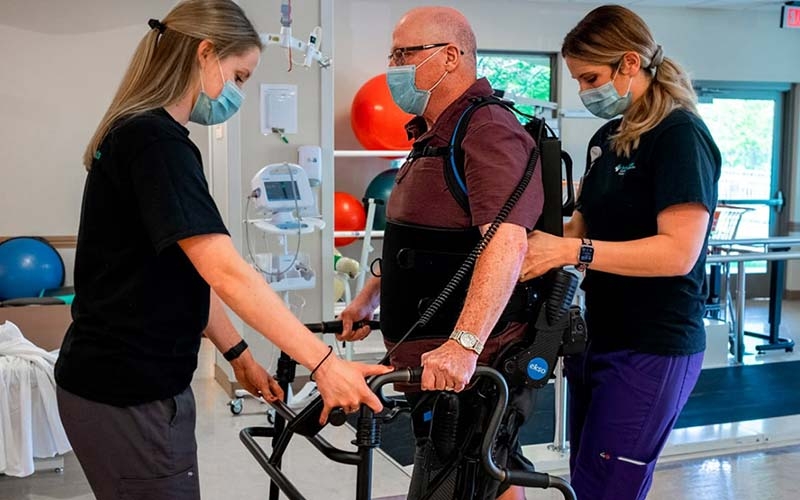
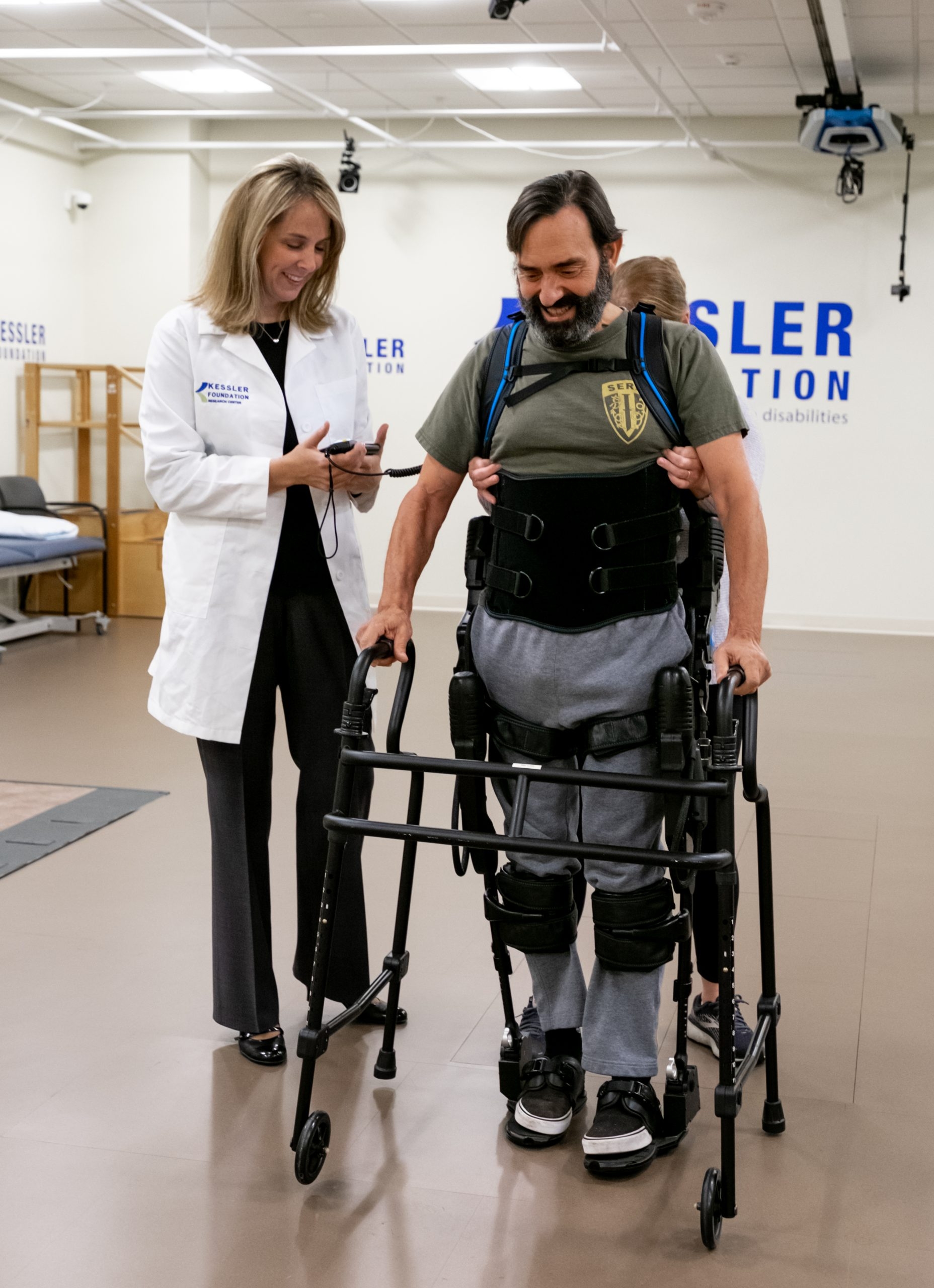
Publications & presentations
Past research activity using Ekso Bionics devices have culminated in more than 200 conference presentations, chapters, and published articles. Of these published articles, the studies examine mostly patients with spinal cord injury, stroke, traumatic or acquired brain injury, and multiple sclerosis. More than 50 of those publications including an Ekso Bionics device are review articles or meta analyses.
Studies on Ekso Bionics devices as well as exoskeletons as a whole cover a variety of topics and focuses. Download our research summary to see what the research says on these topics:
- Balance
- Bladder
- Body Composition
- Bowel
- Cardiovascular
- Endurance
- Exertion
- Function
- Gait Speed
- Muscle Strength
- Pain
- Patient and Therapist Perspective
- Personal Devices
- Quality of Life
- Skin
- Spasticity
- Trunk Control
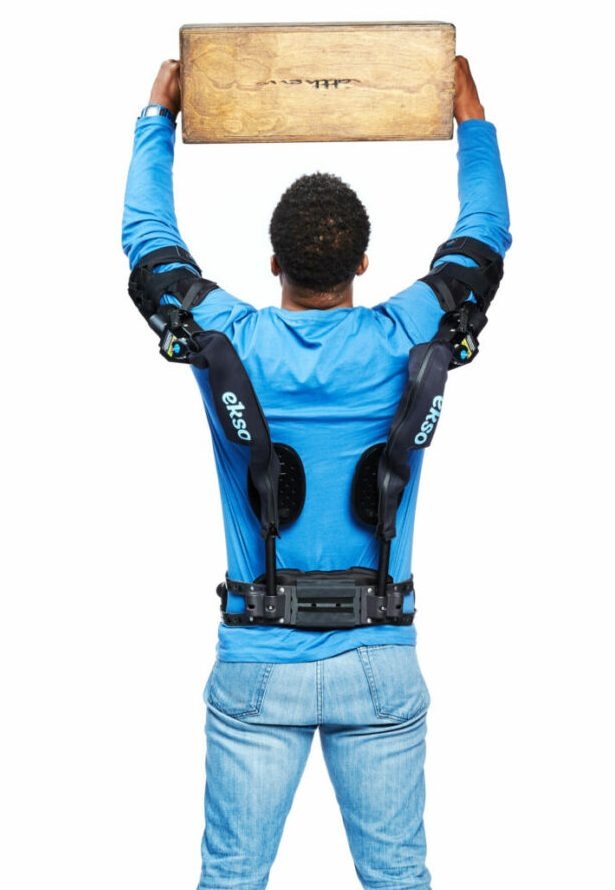
Proven success with EksoWorks.
Customers and institutions alike have studied the efficacy and usability of Ekso in the industrial sector. Studies have shown that Ekso, engineered with optimized load paths, can reduce spinal stress, shoulder strain, and task completion time.
According to Virginia Tech, trunk extension and spinal twisting under load, both infamous for causing back injury, are reduced by EksoVest (the first evolution of Ekso EVO).
Virginia Tech also found a reduction in shoulder muscle activity levels during shoulder flexion and abduction with EksoVest, suggesting it supports and unloads the shoulder complex during activities that are typically shoulder-straining. Additionally, if one has an imbalance in arm strength, Ekso can help the ‘weaker’ arm contribute more during bi-manual lifting, reducing spinal stress.

